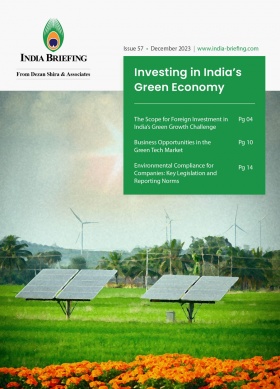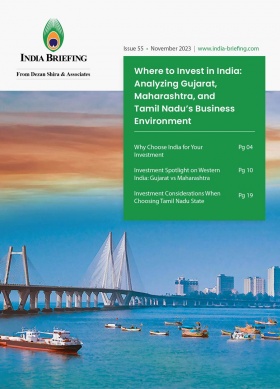India’s 2024 Pre-Interim Budget: What Businesses and Investors Want
In her sixth union budget, which will be an interim budget before the 2024 general elections, Finance Minister of India, Nirmala Sitharaman, is expected to address challenges in the power, utilities, and renewables sectors, with a focus on infrastructure development and tax relief.
Industry leaders and FMCG conglomerates are seeking transformative measures for the e-commerce sector and support for digital innovation and MSMEs. Other sectors, such as fertilizers, chemicals, and MedTech, have expressed concerns about issues like subsidies, dumping, and high taxation.
Industry pioneers across India have put out their wish lists seeking favorable policies to drive growth and address specific challenges within their domains in the upcoming budget.
What is an interim budget?
The interim budget functions as a short-term financial plan to fund central government spending until elections are held and a new central government assumes power. The outgoing government drafts an interim budget in order to ensure that essential government functions and services continue uninterrupted until the next administration takes office.
To cover essential expenses, such as financing ongoing government activities and central government personnel’ salaries, the Parliament approves a vote-on-account. A vote-on-account can be prolonged if needed, but its normal duration is two months. The interim budget is only effective until March 31, 2024, after which the current government’s spending power is restricted.
India’s Finance Minister Nirmala Sitharaman is going to present the interim budget of financial year 2024 on Thursday, February 1. India is scheduled to undergo general elections in the early summer, which is why the budget announcement by the incumbent government is called an interim budget.
The current budget will be unveiled in a joint session of Parliament whereas the complete financial budget will be proposed after the general elections, which are scheduled to take place by April and May of this year.
Expectation of industry leaders and investors from India’s interim budget 2024-25
Sitharaman has emphasized that the forthcoming budget session will not witness significant declarations. Nevertheless, business leaders have not dismissed the possibility of essential policy announcements in her interim budget aimed at fostering manufacturing, allocating greater funds for infrastructure development, and providing tax relief.
Meanwhile, Kuljeet Singh, Director of Finance at GI Group Holding, has expressed key measures to be announced on the lines of a progressive tax structure, incentivizing compliance, and providing targeted relief for small and medium enterprises (SMEs) to enhance economic inclusivity.
“We propose promoting digital transactions through incentives and calling for a comprehensive review of the Goods and Services Tax (GST) structure for simplification. Recognizing environmental responsibility, we suggest tax incentives for sustainable practices. Additionally, strategic investments in social sectors and targeted relief for startups align with our vision for an equitable economic landscape. A comprehensive review of capital gains tax and clear guidelines on cross-border taxation are also crucial for ensuring fairness and compliance,” he said.
Infrastructure sector
The infrastructure sector in India is projected to achieve a Compound Annual Growth Rate (CAGR) of 9.57 percent throughout the forecast period from 2024 to 2029. With the industry’s expansion, there is a growing demand for efficient and cost-effective solutions in infrastructure development.
Furthermore, the Asia-Pacific region is witnessing an increasing preference for green buildings. With India’s aim for a US$5 trillion economy (by 2025), an improved construction approach becomes imperative. Pre-engineered buildings (PEBs) offer a practical solution; however, implementing a supportive regulatory framework is crucial. Measures like ‘reducing GST or providing incentives for incorporating PEBs’ in government infrastructure projects could play a pivotal role in advancing this objective.
Food and fertilizer sector
For FY 2023-24, the government had allocated INR 1.75 trillion for fertilizer subsidies in the 2023 budget, of which 55 percent of the amount was already expended within the initial five months. At present, there is a significant decrease in international fertilizer prices leading up to the Rabi season (winter cropping season – mid-November to April/May), due to which it is anticipated that the government may not allocate a higher budget for this purpose. Media reports suggest that the current year’s fertilizer subsidy is expected to remain around INR 1.88 trillion.
A rescue package for India’s chemicals sector?
The year 2023 proved rather difficult for specialty chemicals producers in India, and the industry continues to grapple with reduced profitability due to sluggish demand amid the global economic downturn and unpredictable fluctuations in crude oil prices.
It has been reported that major chemical production in the country dropped from 5.43 million tons during 2022–23 (up to August 2022) as compared to the previous year to 5.35 million tons in 2023–24 (up to August 2023).
The competition posed by imports, primarily originating from China, is further impacting domestic players, especially in the face of weakened demand in both the Eurozone and the United States, as highlighted by industry insiders.
Leaders in the chemical industry are anticipating the announcement of measures to address the issue of chemical dumping from neighboring countries into India. Manufacturers emphasize that the practice of dumping chemicals from nearby Asian nations poses a significant threat to Indian manufacturers, leading to an unsustainable business model for industries in general.
To address this concern, stakeholders want the government to impose substantial duties on such imports from neighboring countries to protect the interests of the domestic industry.
MedTech sector
One of the fastest-growing and thriving markets for foreign direct investment (FDI) is India’s MedTech sector, which attracted about US$464 million in 2023 (January–September), according to data from the DPIIT. The central government implemented several changes in 2023, including the National Medical Device Policy (NMDP) and the Promotion of Research & Innovation in Pharma MedTech sector (PRIP), to foster the expansion of this sector. The Medical Technology Association of India has commended the government’s initiatives to reduce compliance costs and establish laws in line with international standards, which have been well-received by the sector, as evidenced by the FDI patterns observed in the first three quarters of 2023.
However, the sector continues to face obstacles in the form of high tariff and customs duty rates, along with the imposition of an additional health cess ad valorem on the sector. Mr. Pavan Choudary, Chairman of MTaI and Managing Director of Vygon India, has also expressed his concerns regarding the customs duties and taxes imposed on medical devices in India, which are among the highest in the world.
“As per government data, more than 80 percent of critical medical devices are imported into India to meet the rising demand for quality healthcare. We hope that as the preparation for the Union Budget 2024 gets underway, a correction in the tariff rates is urgently being considered,” he said.
Sanjay Bhutani, Director of the Medical Technology Association of India and Managing Director of Bausch & Lomb, remarked, “While India’s reliance on medical device imports may seem very high at first glance, a closer scrutiny provides a different picture. The increase in imports in India is primarily due to the growing demand for medical devices, driven by the rising population, increased lifespan, and lifestyle-related diseases. Moreover, the expansion of universal coverage schemes, such as Ayushman Bharat (PMJAY), has amplified the demand for quality healthcare. However, high taxation in the form of customs duty, health cess, and GST is detrimental to the interests of both patients and the industry. We believe customs duty rates should be lowered to 2.5 percent for all medical devices.”
Bhutani, in his pre-interim budget 2024 expectations, has also stated that the 5 percent health cess ad valorem imposed on imported medical devices has further compounded the burden on the industry. Since India continues to rely on imports, like many developed and developing economies, Bhutani argues that an additional tax threatens not only to impede access to advanced medical equipment coming to India but will also leave patients bearing the brunt of these additional costs, contributing to the inflationary spiral.
Limited budget, vast industry expectations
Though no concrete hints have been provided by the central government regarding the expectations for the interim budget, numerous industry analysts and thought leaders anticipate sustained support for sectors like power, utilities, and renewables on February 1. Some industry experts expect special emphasis to be given to companies in the railway, infrastructure, and capital goods sectors, while FMCG and auto firms are poised to benefit from increased rural spending.
Ashish Gupta, Head of Legal and Government Relations, Ebay, has said, “At eBay, we eagerly anticipate the Union Budget 2024–2025, foreseeing a transformative era for India’s e-commerce sector, particularly in enhancing eCommerce exports. We’re looking forward to a budget that streamlines business operations, promotes innovation in digital payments, and strengthens the logistics infrastructure, all while keeping a focus on supporting MSMEs through tax benefits and regulatory ease.”
He added, “Building on the success of the previous year’s impactful Foreign Trade Policy, we’re optimistic about a budget that will position India prominently in the global e-commerce exports arena. Envisioning the budget as a catalyst, we aim for export-oriented policies to propel India’s e-commerce onto the global stage, fostering sustainable growth and international competitiveness.”
About Us
India Briefing is produced by Dezan Shira & Associates. The firm assists foreign investors throughout Asia from offices across the world, including in Delhi and Mumbai. Readers may write to india@dezshira.com for more support on doing business in India.
We also maintain offices or have alliance partners assisting foreign investors in Indonesia, Singapore, Vietnam, Philippines, Malaysia, Thailand, Bangladesh, Italy, Germany, and the United States.
- Previous Article The Draft Delhi Industrial & Economic Development Policy 2023–33
- Next Article GIFT City’s Rising Profile: Government of India Emphasizes Key Progress Ahead of Interim Budget 2024









